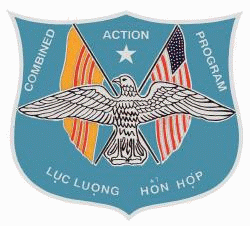
A Dog Handler's Story
Submitted by: John Denecke
 |
A Dog Handler's Story
Submitted by: John Denecke |
Editor's Note: John J. Denecke died in June, 1998, shortly after he submitted this story to the CAP Web Site. I received an e-mail from his family telling me how pleased he was to know that Rex will continue to honored on the CAP Web Site.
REX: 5A31
This essay is based on my personal experiences as a Scout Dog handler serving with the Third Combined Action Group, USMC, in the Republic of Viet Nam in 1969. To begin, let me explain what this group's role was in Viet Nam. A CAG team was made up of seven to ten Marines who lived with the villagers and taught the men how to defend their homes and families from the Viet Cong who would try to penetrate these villages for food and supplies to support their mission.
A Scout Dog team was a big advantage to these small units because of the dog's ability to detect and search out the enemy much quicker than a human could. The handler was only as good as his dog, and the most important asset was the handler's ability to read his dog's alert and act upon it. The remainder of this essay will be based on the dog I served with, Rex 5A31.
Many dogs are similar because of their training, but no two are exactly alike. This is why it is so important for the handler to really know his dog and learn what every move means. A dog cannot talk, so the way he communicates is his most important asset to his handler.
The most important effect Rex had when working in the villages was the phycholgical one. Since the enemy worked in small numbers when trying to penetrate a village, they would avoid one where they thought a dog team was working because they knew the dog's capabilities for early detection, and also the dog's eagerness to attack if the handler thought it was needed. Never staying in one village for a long period of time was also an advantage because the enemy was never sure where you were and the dog worked best in strange areas. Most of our experiences with these small units were night ambushes and daytime search and destroy missions. Once Rex had his work collar on, and we started moving out, he knew what to do. We usually walked about twenty meters out in front of the column so that if Rex did alert on anything I could react and protect him because his job was done. The rest was up to the squad. Often we ended up ambushing the enemy who had intended to ambush us because of Rex's outstanding sense of smell and danger.
A day does not go by in my life that I don't think of Rex and wish he could have come home with me. I'll never forget him as long as I live. He is the reason I'm still living.
SEMPER FI REX
John J. Denecke
January, 1970
Return To: